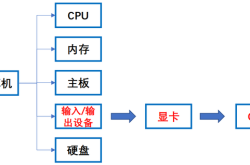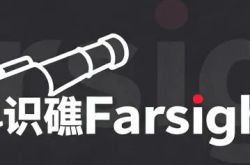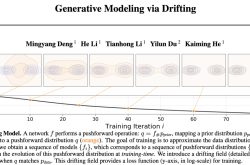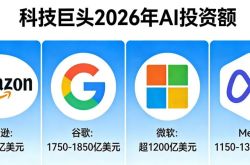What is the current status of AI Agents? Let's discuss recent market trends in China's AI Agent industry
![]() 11/24 2024
11/24 2024
![]() 659
659
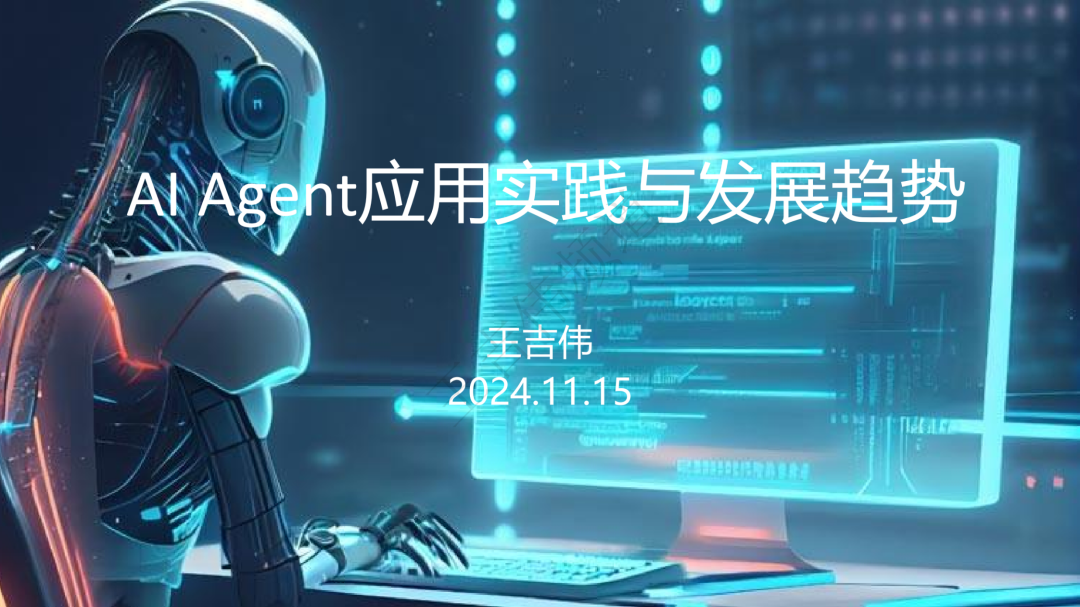
What exactly is an AI Agent? Revisiting the definition and essence of AI Agents
What is the current status of AI Agents? Let's discuss recent market trends in China's AI Agent industry
Application practices and development trends of AI Agents
How to quickly create a personalized AI Agent that suits you? (Upcoming)
AI Agent product and project hands-on: How to build AI Agents using Coze, DingTalk, and Dify? (Upcoming)
Ollama+OpenUI+Dify: A trinity approach to building a local AI Agent system (Upcoming)
Approximately 2000 words + PPT, 6 minutes reading time
Written by Wang Jiwei
One year after Bill Gates predicted that "AI Agents will revolutionize our lives within five years," AI Agents have truly taken off now.
Let's first look at the moves by large model vendors and software vendors.
On October 22, Anthropic released Claude 3.5 Sonnet, an upgraded version capable of controlling computers. On October 24, Microsoft open-sourced OmniParser, an AI tool for analyzing and recognizing interactive icons on the screen.
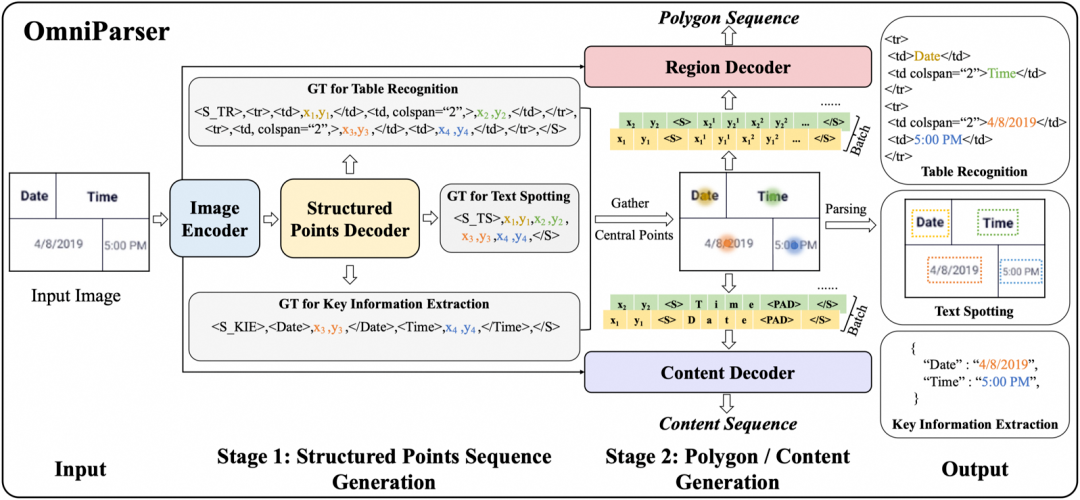
OmniParser overall framework diagram Paper link: https://arxiv.org/abs/2403.19128 Code: https://github.com/AlibabaResearch/AdvancedLiterateMachinery On October 25, Zhipu AI officially launched AutoGLM, which can control mobile phones (with a web version for PCs). News also spread in the past few days that OpenAI plans to release an AI assistant product codenamed "Operator" in January next year, capable of automating various complex operations. In fact, in mid-October, RealAI internally released a mobile AI Agent. Besides introducing UFO, OmniParser, and other technical frameworks and tools that can control PCs, Microsoft also launched the Windows Agent Arena benchmark framework in September to evaluate the performance of generative AI Agents on Windows PCs.
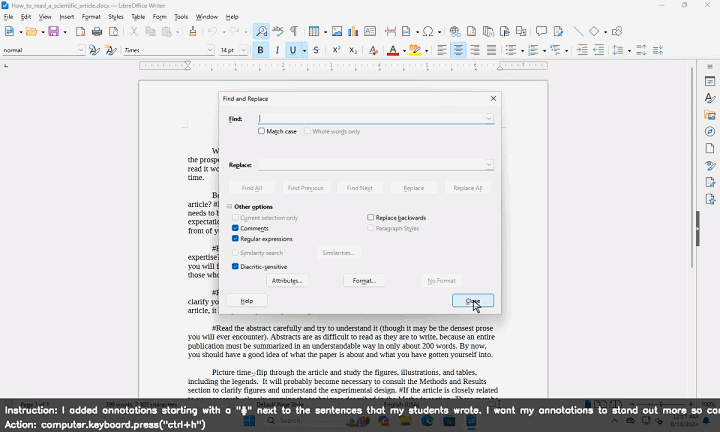
Windows Agent Arena running screenshot Paper URL: https://arxiv.org/abs/2409.08264 Project URL: https://microsoft.github.io/Win The actions of hardware vendors in the field of AI Agents go without saying.
On October 10, vivo released PhoneGPT, a mobile AI Agent. On October 15, Lenovo released "Lenovo AI Now," a PC-based personal AI Agent based on Meta's Llama model, and launched its first AI Agent all-in-one machine on the 30th. On October 17, OPPO released the first smart device AI Agent development platform for mobile phone manufacturers. On October 22, Huawei introduced Harmony Intelligence, a new HarmonyOS-native AI, and XiaoYi AI Agent equipped with the Pangu large model. On October 23, Honor officially released MagicOS 9.0, a personalized, full-scenario AI operating system equipped with AI Agents.
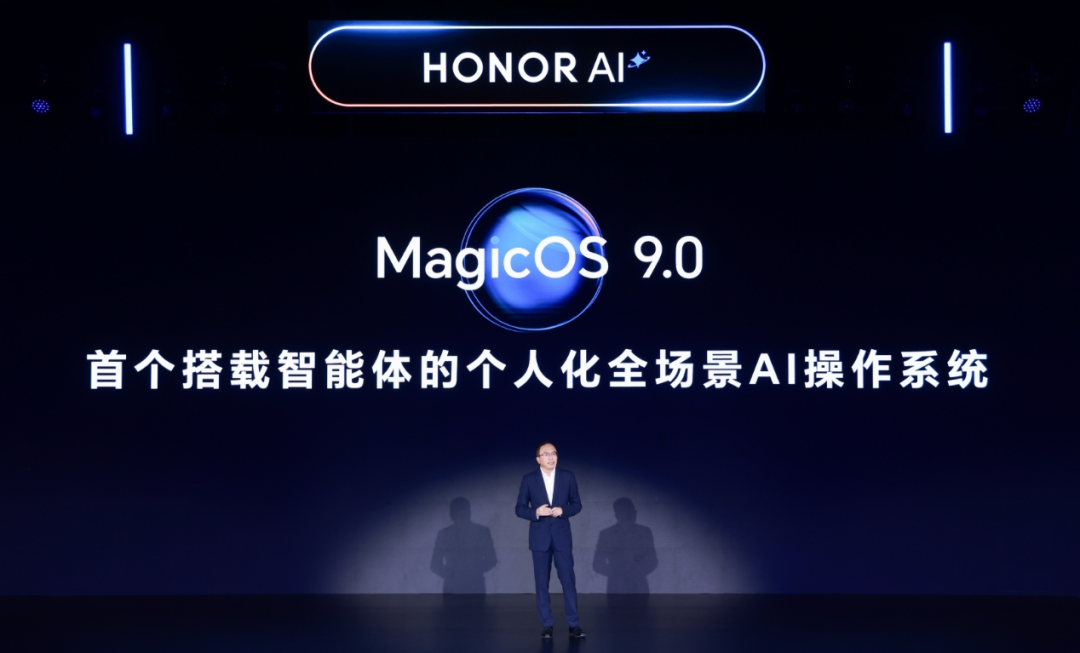
These are no longer Agents mentioned in media reports but tangible AI Agents.
During this year's Double 11 shopping festival, sales of AI computers and AI mobile phones equipped with AI Agents increased by over 100% year-on-year, and sales of AI smart glasses also saw a 100% increase year-on-year. Ola Friend, the first AI Agent earphones released by Doubao, a subsidiary of ByteDance, in October, also became a dark horse in sales.
After extensive media coverage of AI Agents, it's finally the turn of securities firms to frequently enter the spotlight. In the past two months, dozens of securities firms have released research reports related to AI Agents, and search results for the keyword "AI Agent" have surged. Major securities firms are all optimistic about the future of AI Agents.
To gauge the popularity of an industry, one must also consider who is hyping it up. Amid the frequent barrage of research reports from securities firms, the secondary market has responded significantly. Amid heated discussions among investors, a series of conceptual stocks have emerged, including "AI Agent Concept Stocks," "Smart Agent Concept Stocks," "Computer Use Concept Stocks," "Phone Use Concept Stocks," and "Zhipu Concept Stocks." In the eyes of many investors, a nebulous concept like "Metaverse" could be hyped up just a few years ago. Now that AI Agents, which have already been implemented and felt by the public, are naturally more resilient and worth hyping up even more. It is foreseeable that the Metaverse will shine again with the technical support provided by AI Agents.

On the corporate side, the market value of listed companies focusing on Agents has begun to rise, such as Doushen Group, an education company that has partnered with Zhipu AI. The share prices of companies associated with certain AI Agent concept stocks will also rise, such as Kute Smart, empowered by Huawei AI Agents.
Listed companies' willingness to attach the "AI Agent" label further confirms the market heat of AI Agents. It is conceivable that many more listed companies will attach the Agent label to boost their stock prices.
This wave of favorable conditions for AI Agents began with Claude 3.5's ability to control computers, sparked by smart device vendors, and exploded with Zhipu's AutoGLM.
The explosion is not focused on large models' ability to control screens or how AI Agents operate mobile phones, but rather on the fact that AI Agent software and hardware in China are now accessible to everyone and have achieved impressive sales performance.
Under this trend, vendors that have long introduced Agent technology frameworks and products capable of controlling computers and mobile phones have naturally regained significant attention, and the RPA Agent category has also welcomed its moment in the spotlight by extending its reach from controlling PCs to mobile phones.
The above content discusses the current market status of AI Agents, based on recent observations and summaries from Wang Jiwei Channel. Coincidentally, I recently accepted an invitation from ITpub and China Machine Press to conduct a live sharing session, so I included these thoughts in the PPT for the live sharing.
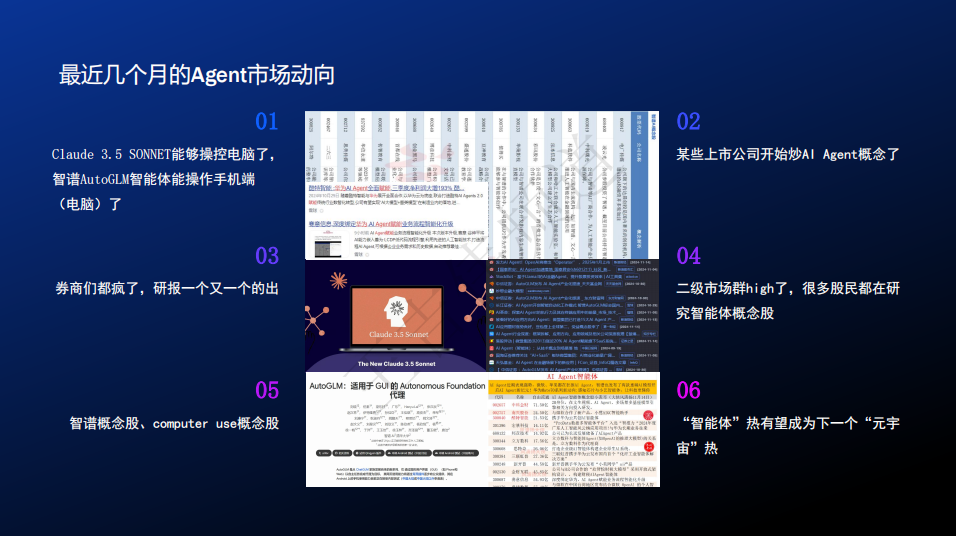
The title of this sharing is "AI Agent Application Practices and Development Trends," and the content is mainly presented in four parts:
What is an AI Agent (Revisiting the Definition of AI Agents)
Current Status of AI Agents (Recent Market Trends in the AI Agent Industry)
AI Agent Products and Project Hands-On
Application Development Trends of AI Agents (12 application directions and 17 development trends)
This PPT also addresses questions that many fans are concerned about:
Why did Claude 3.5 go viral for "controlling computers," triggering an explosion in domestic AI Agents?
How to quickly create a personalized AI Agent that suits you?
Can platforms like Coze and DingTalk be used to build business-oriented AI Agents?
Building Local AI Agents Using Dify
Exploration of Edge-side Agent Applications
During the live broadcast, the first two parts took up too much time due to their detailed nature, leaving only a brief demonstration of the hands-on section. Of course, this article only contains the PPT and cannot demonstrate the hands-on process. Later, I will take the time to make several videos of the project hands-on section, hoping to help everyone.
The textual content of this article ends here. Below is the PPT for this live sharing session. For those who need the original PPT file and the two papers mentioned in the article, please reply with "11.15" to obtain the download link.
PPT Content: AI Agent Application Practices and Development Trends



